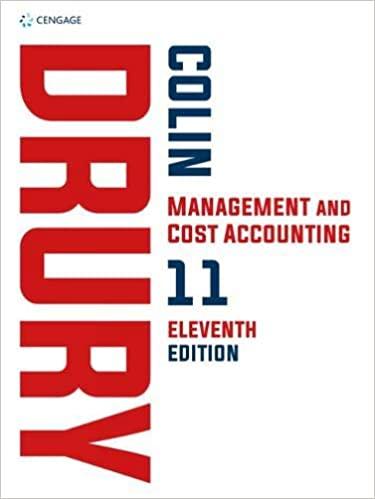Luvij manufactures high quality, luxury womens footwear. It sells its products on its own website and also
Question:
Luvij manufactures high quality, luxury women’s footwear. It sells its products on its own website and also to small independent retailers. In order to monitor performance and aid decision-making, Luvij collects sales data on all of its footwear ranges and feedback on its designs from customers and retailers.
In addition, to ensure that prices remain competitive, Luvij has a team of staff to monitor the prices of similar products on competitors’ websites and to identify design trends in the market, which change frequently, and from season to season. Generating new footwear designs consistent with changing market trends is a critical success factor for Luvij. The large volume of data collected is entered into a complex spreadsheet by one data entry clerk.
Luvij operates a functional structure with different departments for sales, production, purchasing and design. The spreadsheet is sent by email to the senior manager of each of these departments at the end of each quarter. The senior managers for the sales, production and buying departments are expected to generate the relevant sales, production and purchasing forecasts by analysing information contained in the spreadsheet. The senior manager of the design department uses the information to generate new footwear designs consistent with market trends.
Luvij has a strategic objective to become the market leader in the sale of high quality, children’s footwear to small independent footwear retailers. It has already invested heavily in market research and developing innovative designs. To reduce the risks of not achieving this strategic objective, for example by having insufficient capacity to produce a larger range of footwear styles, the board is considering entering into a joint venture with Shirville.
Shirville is a large manufacturer of exclusively children’s footwear. Its advanced manufacturing machinery and production techniques mean that it can produce the high volumes required to supply supermarkets and chain stores found on the main streets of most towns and cities. Shirville’s objective for the joint venture is to utilize spare production capacity it has in a factory which it holds on a lease which expires in three years.
One recently appointed board member at Luvij has commented, ‘I believe that the external information on market trends and competitors’ prices compiled in the quarterly spreadsheet is of limited usefulness, as I have heard complaints from managers that they have difficulty understanding the large volume of data given to them, and that they often receive this too late. The company I worked for in my previous job used a unified corporate database to share information in real time across all parts of the business. A similar unified corporate database may be useful for Luvij. I am also concerned about the potential problems of measuring and managing the performance of the joint venture with Shirville. The fact that the two businesses have different objectives is just one example of why these problems may occur, though there will also be other reasons.’
Required:
(a) Explain the factors which might limit the usefulness of the external information currently used by Luvij and evaluate how the use of a unified corporate database could help to overcome these limitations.
(b) Advise the board on the potential problems with the measurement and management of the performance of the joint venture with Shirville.
Step by Step Answer:






